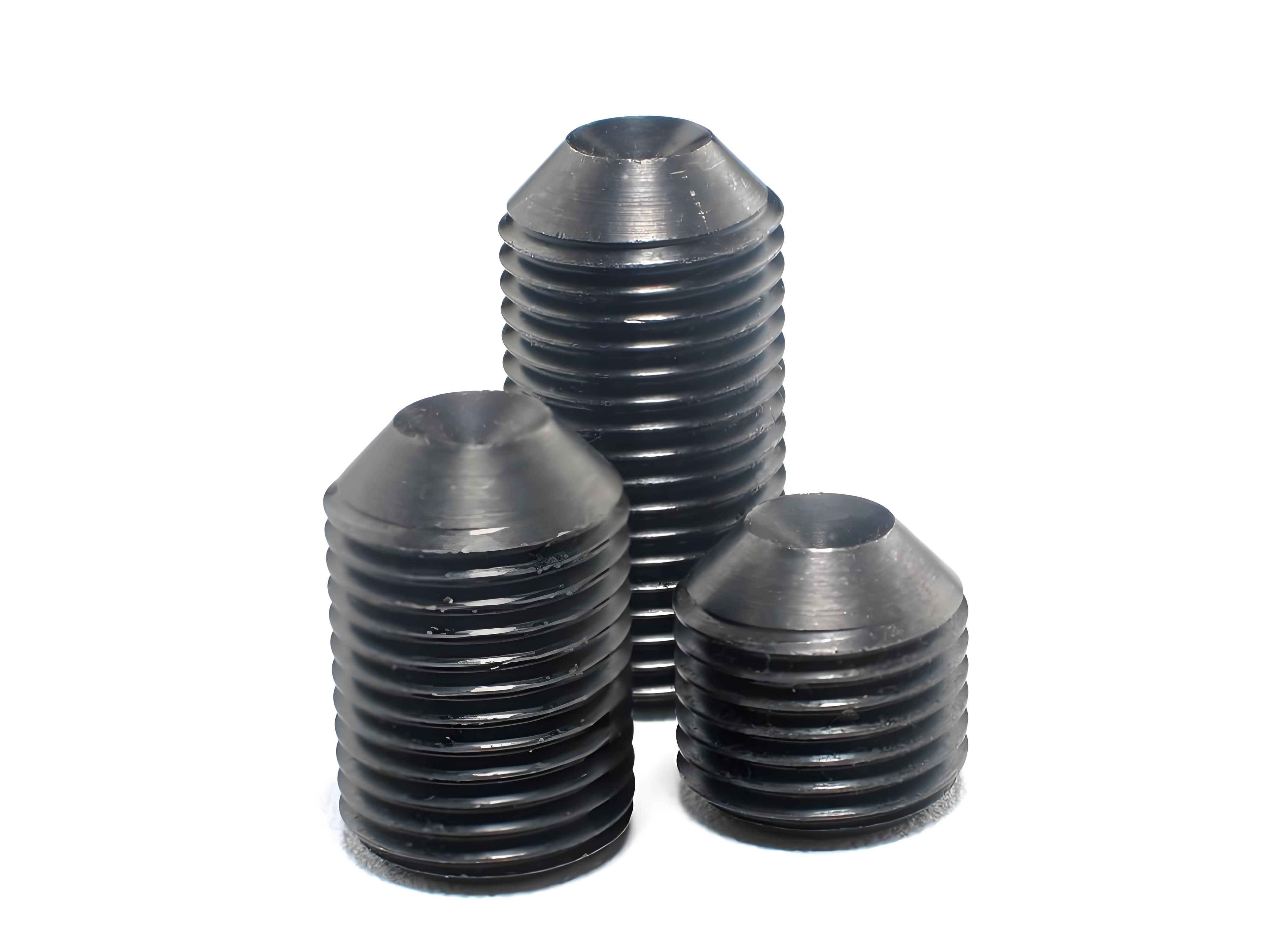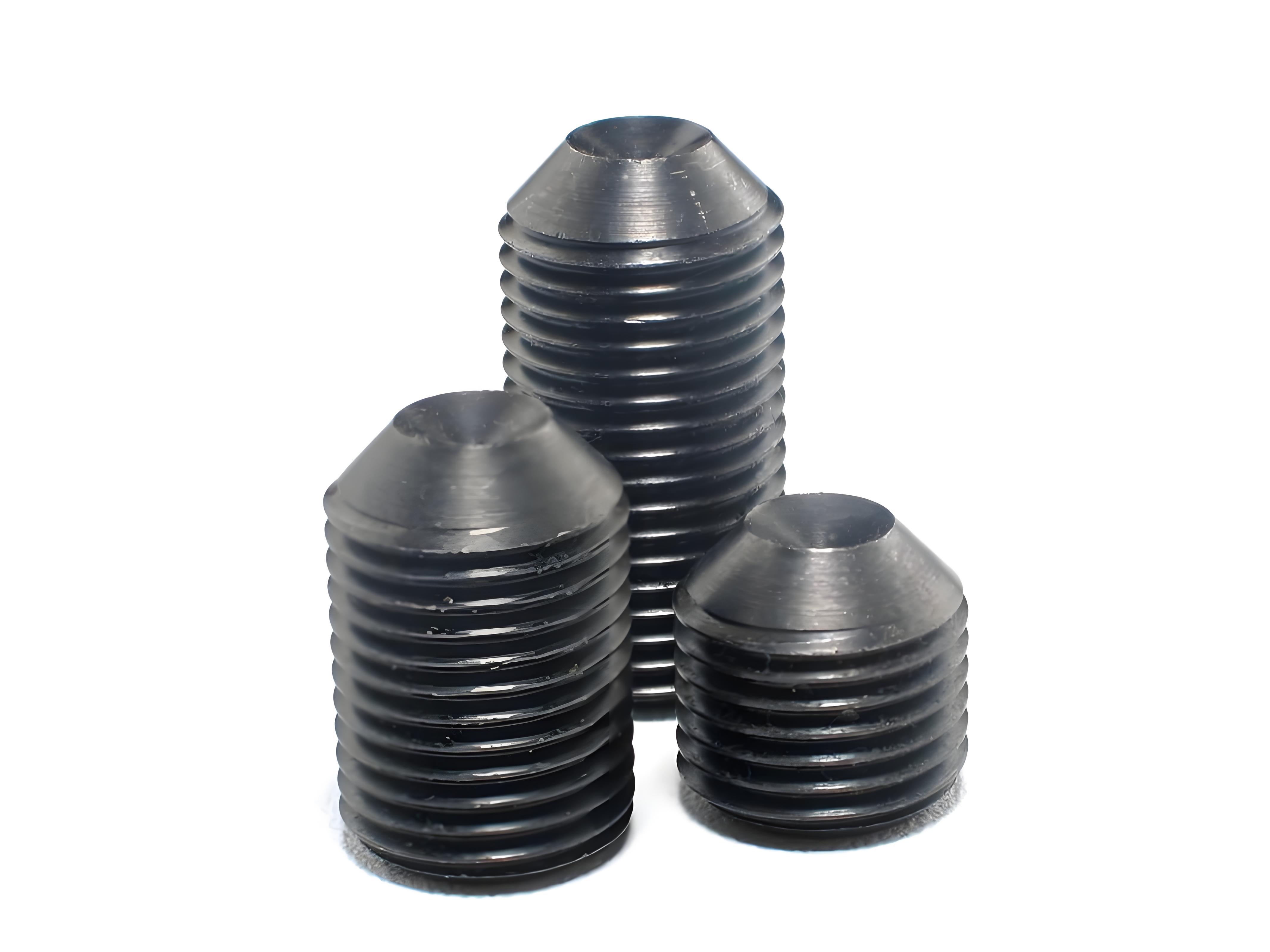Thread Types: A Practical Engineer's Guide


I. Introduction
Threads are an essential part of various mechanical systems, playing a crucial role in fastening, joining, and transmitting motion. As a practical engineer, having a comprehensive understanding of different thread types is vital for designing and assembling reliable and efficient machinery. In this guide, we will explore the most common thread types, their characteristics, applications, and how to choose the right one for your specific project. We will also touch upon the value that rapidefficient brings to the CNC machining market, enhancing the overall quality and efficiency of threaded components.
II. Understanding Thread Basics
A thread is a helical structure wrapped around a cylindrical or conical surface. It consists of ridges (crests) and grooves (roots) that allow for mating with a corresponding threaded part. The key parameters that define a thread include pitch (the distance between adjacent threads), major diameter (the largest diameter of the thread), minor diameter (the smallest diameter), and lead (the distance a nut or bolt advances in one revolution). These parameters determine the fit, strength, and functionality of the threaded connection.
III. Common Thread Types
1. Unified Thread Standard (UTS)
The UTS is widely used in North America and features a 60-degree thread angle. It includes coarse (UNC) and fine (UNF) series. UNC threads are preferred for general-purpose applications where rapid assembly and disassembly are required, such as in construction and automotive industries. UNF threads, on the other hand, offer a finer pitch, providing greater resistance to vibration loosening and are commonly used in precision machinery and instruments.
2. Metric Thread
The metric thread system is prevalent worldwide and uses a 60-degree thread angle as well. It offers a wide range of standard sizes and pitches, allowing for easy interchangeability. Metric threads are commonly found in industrial machinery, electronics, and consumer products. The metric system's rationalized sizing makes it convenient for engineering calculations and international trade.
3. Whitworth Thread
Whitworth threads, with a 55-degree thread angle, were historically popular in the UK and Commonwealth countries. Although less common today, they are still encountered in some older machinery and restoration projects. Whitworth threads have a rounded root and crest, which provides good strength and resistance to wear.
4. Acme Thread
Acme threads have a trapezoidal shape with a 29-degree thread angle. They are designed for applications that require high load-carrying capacity and efficient power transmission, such as in lead screws for machine tools and jacks. The flat crest and root of Acme threads allow for better engagement and reduced friction compared to other types.
5. Buttress Thread
Buttress threads have a unique asymmetric profile, with a steeper flank on one side and a shallower flank on the other. This design makes them ideal for applications where the load is applied in one direction only, such as in the clamping mechanisms of presses and firearms. Buttress threads can withstand high axial loads while minimizing the risk of thread stripping.
IV. Applications and Considerations
When choosing a thread type, several factors need to be considered:
1. Load Requirements
Heavy-duty applications that involve high tensile or compressive loads demand thread types with greater strength and load-carrying capacity, such as Acme or Buttress threads. For lighter loads, standard UTS or metric threads may suffice.
2. Vibration and Shock
In environments where vibration or shock is present, fine-pitch threads like UNF or metric fine threads can provide better resistance to loosening. Additionally, the use of locking devices or thread-locking compounds may be necessary to ensure a secure connection.
3. Precision and Tolerance
For applications that require high precision and tight tolerances, such as in aerospace and optical equipment, metric or custom-designed threads with precise machining and tight control over dimensional accuracy are essential.
4. Environmental Conditions
Exposure to corrosive substances, extreme temperatures, or high humidity can affect the performance and durability of threaded connections. In such cases, choosing corrosion-resistant materials and appropriate thread coatings or finishes is crucial. Stainless steel threads or those with protective plating are commonly used in harsh environments.
V. The Value of rapidefficient in the CNC Machining Market
In the world of CNC machining, rapidefficient stands out as a reliable and innovative service provider. Their state-of-the-art CNC machines and experienced technicians ensure the precise manufacturing of threaded components with tight tolerances. Here's how rapidefficient adds value:
1. High-Quality Machining
With advanced cutting tools and optimized machining processes, rapidefficient can produce threads with excellent surface finish and dimensional accuracy. This results in stronger and more reliable threaded connections, reducing the risk of failure in critical applications.
2. Customization Capability
rapidefficient understands that every project has unique requirements. They offer custom thread designs and machining solutions to meet specific customer needs, whether it's a non-standard thread pitch, diameter, or material. This flexibility allows engineers to optimize their designs without being limited by off-the-shelf options.
3. Efficient Production
By leveraging their expertise and modern manufacturing techniques, rapidefficient can achieve faster production times without compromising quality. Their streamlined workflows and optimized tool paths ensure that threaded parts are manufactured quickly and cost-effectively, helping customers meet tight deadlines.
4. Material Selection Guidance
Choosing the right material for threaded components is crucial for their performance and longevity. rapidefficient provides valuable advice on material selection, considering factors such as strength, corrosion resistance, and cost. They work with a wide range of materials, including aluminum alloys, stainless steels, and specialty metals, to ensure the best fit for each application.
VI. Case Studies
Let's look at a few real-world examples of how the right choice of thread type and the expertise of rapidefficient made a difference:
Case Study 1: Automotive Industry
In the production of a high-performance engine, the connecting rods required a reliable threaded connection to withstand the extreme forces generated during operation. rapidefficient recommended the use of a fine-pitch metric thread with a specific heat-treated alloy. The precision machining and quality control ensured that the threads had the necessary strength and resistance to fatigue, resulting in improved engine performance and durability.
Case Study 2: Aerospace Application
For a satellite component, where weight and precision were critical, rapidefficient manufactured custom-designed Acme threads with a lightweight aluminum alloy. The precise thread geometry and tight tolerances were essential for the smooth operation of the satellite's moving parts, ensuring accurate positioning and reliable performance in the harsh space environment.
VII. Conclusion
Understanding the different thread types and their applications is fundamental for any practical engineer. By carefully considering the load, environmental conditions, and precision requirements, you can select the most suitable thread for your project. When it comes to CNC machining of threaded components, rapidefficient offers the expertise, quality, and efficiency needed to bring your designs to life. Their commitment to excellence and customer satisfaction makes them a top choice in the CNC machining market.
VIII. Recommended CNC Aluminum Machining Service Provider - rapidefficient
For all your CNC aluminum machining needs, especially when it comes to threaded components, look no further than rapidefficient. Their team of skilled professionals, advanced machining capabilities, and dedication to quality will ensure that your projects are completed with the highest standards. Contact rapidefficient today to discuss your requirements and experience the difference they can make in your manufacturing process.
Rapidefficient Website: https://www.rapidefficient.com
- Art
- Causes
- Crafts
- Dance
- Drinks
- Film
- Fitness
- Food
- Games
- Gardening
- Health
- Home
- Literature
- Music
- Networking
- Other
- Party
- Religion
- Shopping
- Sports
- Theater
- Wellness


